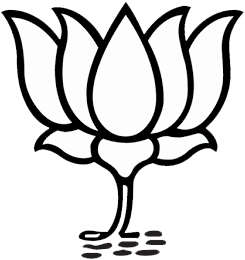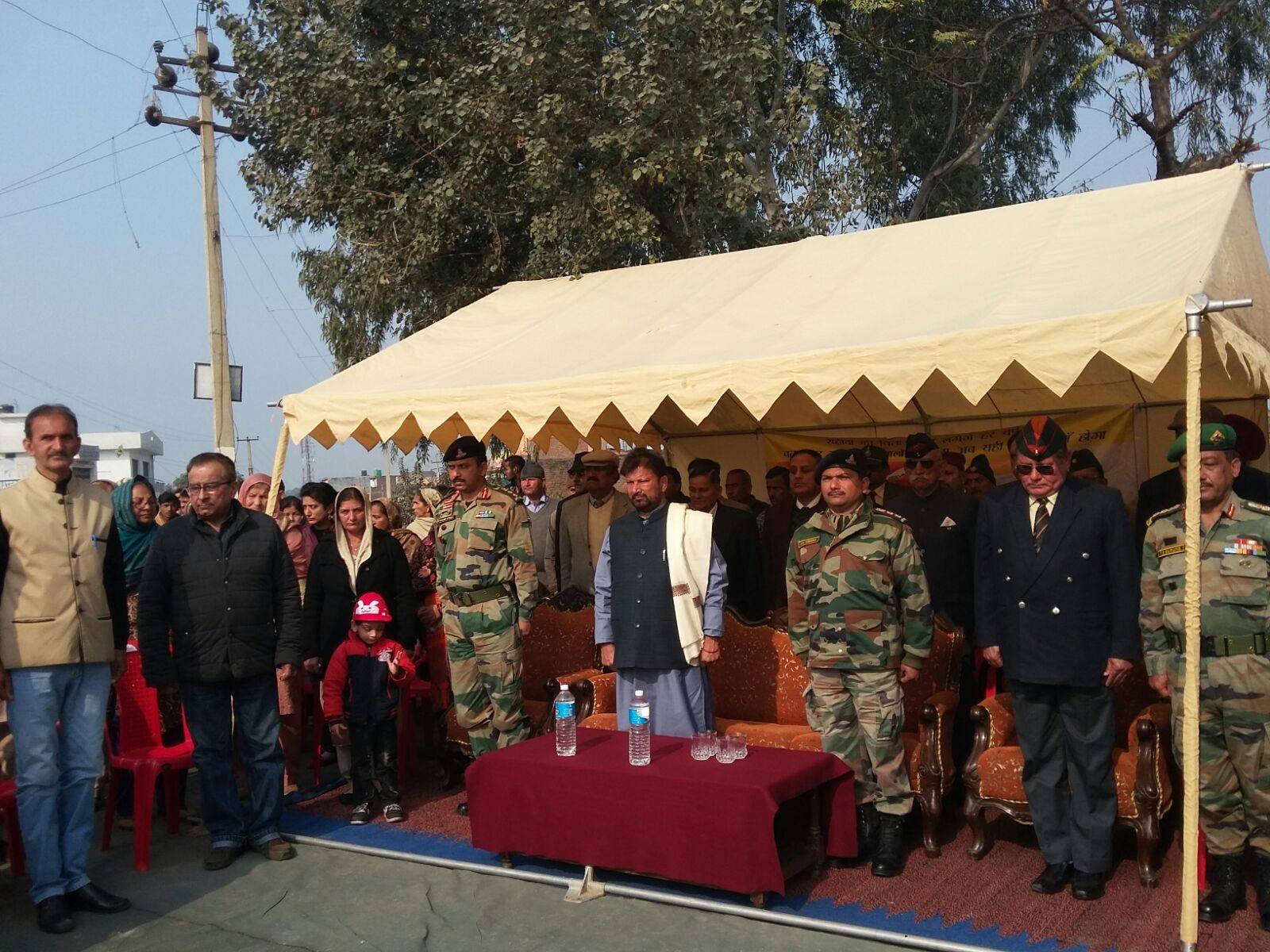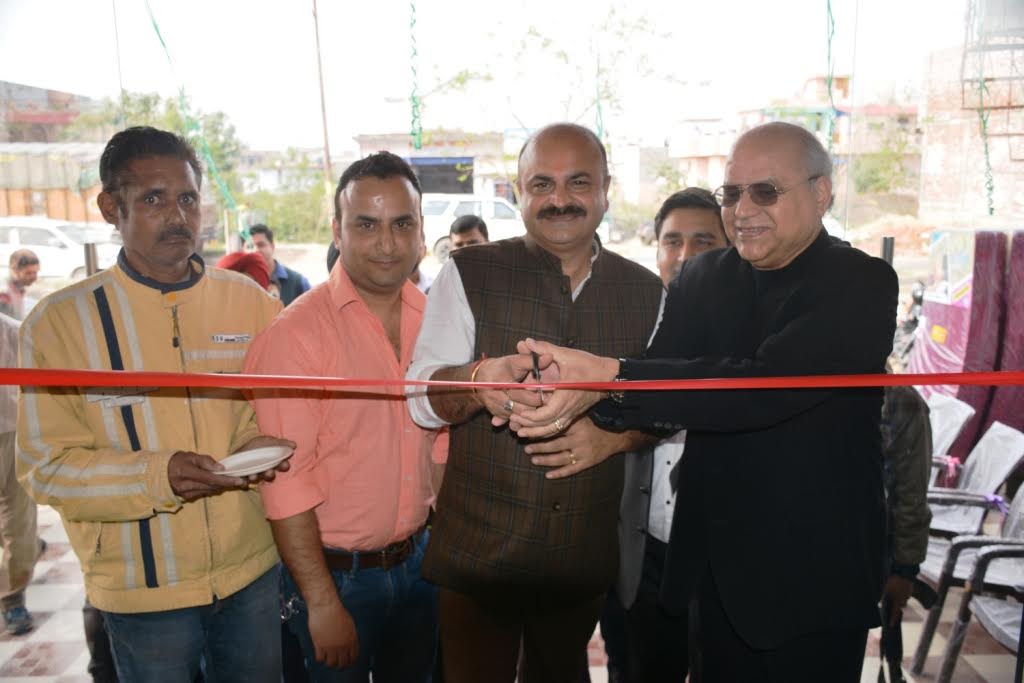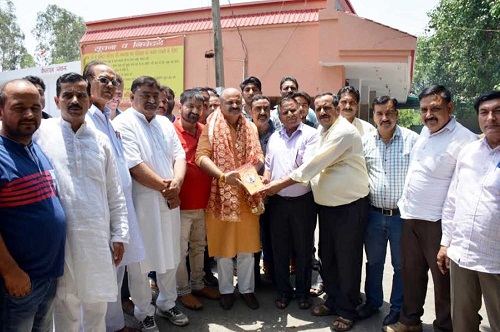The debates and discussions all over the country on revocation of Article 35A is the most talked about Article of constitution of India and is assuming greater significance whilst the matter is subjudice in the Apex Court of the country, states Prof. Kaul, the State Convenor of BJP Human Right Cell. The article has become a major politico legal issue for the state, where the affected people are keenly observing and hoping to get justice which has been denied to the people for the last 70 years. Sensing that justice will finally prevail in the Supreme Court of India, these political groups have started raising hue and cry with illegal designs to influence the proceedings of court.
Article 35A which gives desired protection to controversial and temporary Article 370 accords special rights and privileges to the permanent residents of J&K state and imposes restrictions on person from outside the state. The article has proved to be road block on the integration of J&K State into Union of India. Kashmir political parties and separatists openly raise the bogey of autonomy and self rule and opposing the revocation of the article. It is an indirect conflict with Article 14 and 16 of the Indian constitution and is discriminatory in nature. Article 14 grants rights to equality and equal protection of law to all citizens of India while Article 16 provides rights of equality of opportunity in the matter of employment, but surprisingly and contrarily Article 35A has been instrumental in making J&K state a Muslim majority state.
Article 35A was added in haste to strengthen. Article 370 through a Presidential order on 14th May, 1954 by passing the Parliament which is a necessary formality, where as the Article 370 was itself a temporary provision which was supposed to erode with the passage of time as was stated by Late Prime Minister of India, Pt. Jawaharlal Nehru in a parliamentary debate. As such the Article 35A remains unconstitutional and illegal and has created a void that is detrimental to the constitution of the country, said Prof. Kaul.
There is separate state constitution, separate flag and all the law framed by the Parliament are not applicable to state of J&K. All these factors have resulted into a chronic problem so called Kashmir problem which a nation is confronted with. This is the most appropriate time for the Supreme Court to deal with this complicated problem and to get rid of the article 35A once for all to ensure sense of justice in the state, to ensure complete integration of J&K state into Union of India and to ensure total Indian-ism in Kashmir valley.
Article 35A has no constitutional locus standi and sancity as it reflects gender bias, discriminatory and against the mandate of �Right to Equality�, said Prof. Kaul.
It violates the fundamental rights under article 14 because non citizen in J&K State cannot enjoy the same set of rights and privileges as enjoyed by citizens of J&K State.
Prof. Kaul further added that if �Triple Talaq� is discriminatory against the Muslim daughters of India, Article 35A discriminates against the daughters of the soil of J&K State. Article 35A violates the rights and create inequality amongst the unfortunate woman of state subjects to marry a man of their choice, because if a citizen women marries a non-citizen man, their progeny will not get the Permanent Resident Certificate (PRC) and will be deemed unfit for inheritance, while the same is not applicable for male members. If a male PR of J&K State marries outside the state including Pakistan, his wife gets PRC and their children also get the same privileges. This is discriminatory and against the very basis of gender equality in democratic system.
Likewise the article violates the rights of SC and ST Valmikis in 1957 were given PRC provided that their generations will stay in the state only if they continued working as safai karamcharis or loose all the benefits of PRC. Denial of PRC to their generation born in the state if they opt out of their ancestral job of sweepers is extremely inhuman and unjustified. Their educated lots are either forced to work as Safaikaramcharis or loose all the benefits of PRC. This is against the humanity said, Prof. Kaul. Similarly West Pakistan Refugees are the worst victims of Article 35A. For the past 70 years, WPRs are suffering due to �Special Status� of the state and their subsequent generations born in the state are deprived of their state subjects and are denied the basic citizenship rights, which is clear violation of human rights. They are Indian citizens but live as orphans in the state.
Kashmir based political leaders and separatists who raise hue and cry over the prospects of controversial Article being challenged in the Apex Court remain totally unconcerned about the biggest exodus in the independent India that of nearly 5 lakh Kashmir Pandits in 1990 who were thrown out of the valley, with their roots of over 5,000 years there. They are the indigenous inhabitants of the state living in exile for the last 28 years, said Prof. Kaul. Their return and rehabilitation with dignity and respect should have been the priority of these Kashmir leaders and separatists forces in comparison to defending Article 35A whereas they have no problem in settling thousands of foreign nationals like Rohingyas from Mayanmar and Bangladeshis who have settled in Jammu to disturb the peace and demography of Jammu region. They are in complete silent mode over deportation of these illegal immigrants. The state should employ serious measures on the deportation of these illegal immigrants, posing serious security threat to the state. He further added that construction of Sainik Colony for the defense personnel in the valley who are bonafide state subjects are being vehementally opposed.
Article 35A rates non-permanent residents of J&K as second rate citizen, since they cannot purchase any immovable property in the state, are not eligible for employment by the State government, cannot contest or vote in local body or assembly elections, cannot avail of scholarships and other grants offered by the state government to its permanent residents and cannot seek redress in any court, whereas thousands of Kashmiri individuals have purchased houses, lands etc. in the metropolitan cities of India, but it is shocking the an Indian citizen from other states cannot purchase the same in J&K state said Prof. Kaul and asserted it is ridiculous to have such a provision in our constitution which debars ones own Indian citizen from purchasing the property in his own country. Thus it is clear that Article 35A is not only creating wall of separation between the state subject and rest of the country, but also within the state subjects.
It is true that there are derths of employment resources in the state because no industrialist /businessman is willing to invest in the state, thereby forcing the unemployed youth to migrate from the state in search of job. If other states were to reciprocate and debar citizens of J&K from employment and purchase of property in their states. Have they ever thoughts? This is the reason why there is no or little economic or industrial development in the state. Tourism Industry is suffering, like wise there is derth of faculty in various professional institutes and universities. Such as Medical/Engineering etc. No outside Professor wants to come in J&K, because he is treated as second rate citizen in the state.
Prof. Kaul contradicted the statements of various valley based leaders that there will be an outside domination over the heritage/identity of the people, once the article is set aside and the business sector shall suffer. It is merely a fear psychosis. On the other hand, it will open the flood gates for the industries, thereby providing employment opportunities to the unemployed youth which will bring overall development in all the three regions of the state. Article 35A is being made matter of controversy by certain groups of political leaders and separatists although the issue is before the highest court. They should understand that mass agitation, protests and violence cannot decide the constitutional validity of any provision. Court decision solely depends on the legal arguments and not on threats. Recently resounding judicial verdicts on most sensitive issues like Triple Talaq and on Baba Ram Rahim should be an eye opener for religious and fanatic groups and separatists. This has made every Indian proud, said Prof. Kaul.
He further urged all the political and non-political parties to sort out the measures to get rid of this discriminatory meanance which is doing more harm to the state, than any good in respect of overall development, growth and integration. Time is ripe to take the country forward towards equality and justice said Prof. Kaul.
Let us wait for the Supreme Court verdict on a plea over the issue.




